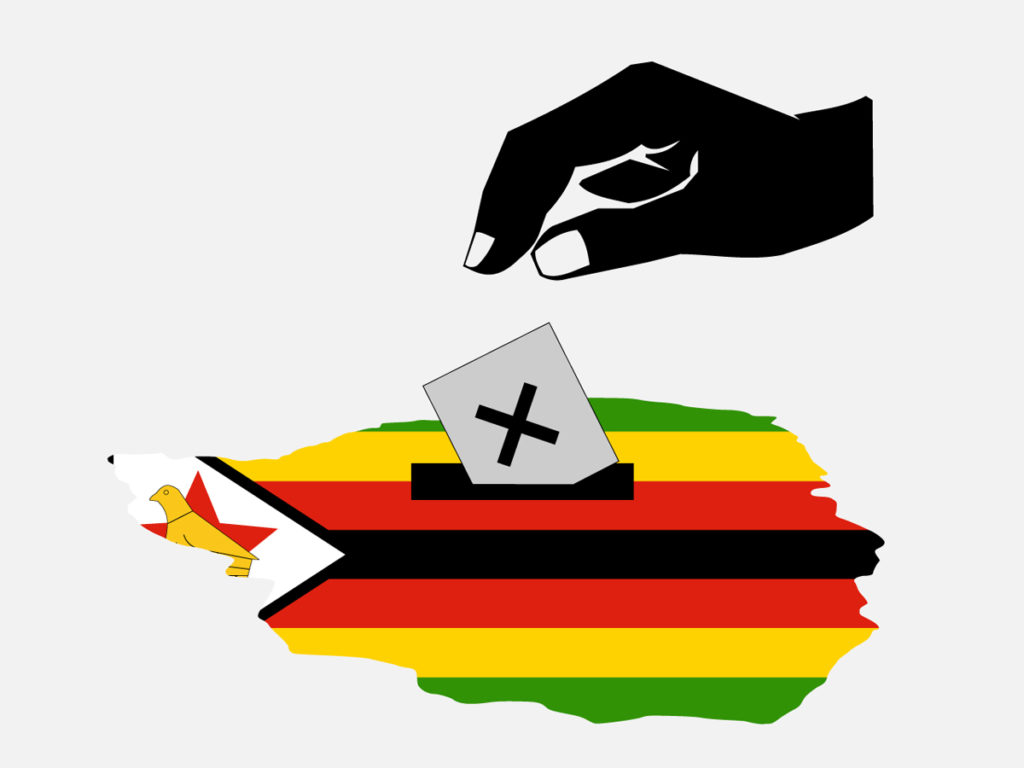A STRUGGLING economy, a shrinking civic space, propaganda, an electoral body under fire and disinformation have all come to the fore ahead of general elections in Zimbabwe. President Emmerson Mnangagwa has gazetted Wednesday, August 23 as the election date.
Political parties have three months to convince the electorate to cast their votes for them. If there is a run-off, it will be held on October 2.
Various think tanks predict a close race between Mnangagwa and his biggest challenger, Nelson Chamisa of the Citizens Coalition for Change (CCC). The latest survey on the elections by US institute Fitch Solutions predicted a Mnangagwa victory because of the ruling party’s access to state machinery and resources.
“Zanu PF’s overarching resources and influence compared to the opposition CCC, headed by Chamisa, will preserve its support in rural strongholds and win key votes in lowincome urban areas. Central to our belief that Zanu PF will win the elections is the party’s far greater political and economic resources it has to sway the vote in its favour,” the organisation said.
Almost all surveys forecasted the elections, while not free and fair, would have violent episodes, and the outcome would leave Zimbabwe’s economy in the doldrums. The Zimbabwe Electoral Commission (Zec) will again oversee an election where its reputation is at its lowest. The Zec’s biggest headache is the voters roll.
Opposition political parties have implored the electoral body to investigate anomalies found in the voters roll such as missing names. “Registered voters, who appeared on the biometric voters roll’s online inspection platform, are suddenly finding their names missing from the current online platforms.
The voters roll, under inspection, seems not to be synchronised with the new delimitation boundaries. Therefore, prospective voters have been displaced from their wards,” Ian Makone, the CCC’s secretary for elections, wrote to the Zec. The Election Resource Centre, an independent organisation, told journalists it looked like
“the voters roll has been tampered with and cannot, therefore, be trusted to deliver a credible election in its current rushed format”. Brian Moyo is a forex dealer by day and a street vendor by night, selling groceries at a time when the local dollar is fast losing value against major currencies such as the in-demand US dollar.
“These are the two most lucrative hustles for an unemployed person with or without political links,” Moyo said. On the streets, US$1 can fetch as much as $6 500, whereas the official bank states US$1 is equivalent to just over $4 800. That means when pricing goods, shops must abide by the official bank rate, but they defy this by pegging their product well above that rate.
A pharmacy owner said: “We increased our prices in the local dollar because we buy foreign currency from the streets.” For an ordinary Zimbabwean earning in the local currency, the cost of living is high. Mnangagwa said he believed the business community was hellbent on destabilising his government. “We see business destabilising the macroeconomy and, in the process, undermining the very effort towards arrears clearance and dent resolution,” presidential spokesperson George Charamba told state media.
B u s i n e s s m a n James Ncube said the economy was much harder to deal with than party politics. “We buy fuel, a factor of production, in foreign currency, and we get that currency from the streets; the government has failed to assist us in many more aspects,” he said.
Like all industries, the media has also been hard hit. State media journalists, who mostly promote the government’s messaging of an economy on the rebound, recently told their employer they were being incapacitated. Some even hinted their situation would derail the ruling party’s chances of an election win.
Journalists from the independent press have echoed the same sentiment. Many feel the state of the economy and their employers’ failure to increase their salaries will affect their mandate in covering the runup to and the eventual polls.
The African Development Bank told Zimbabwe’s government politics played a big role in the country’s economic woes and a free and fair election would boost the country’s prospects. With three months to go before the polls, Mnangagwa is expected to sign the Private Voluntary Organisations Amendment Bill into law.
Its implementation, according to critics, will undermine freedom of association and expression. According to Amnesty International, “the bill threatens civic society organisations working on human rights in Zimbabwe”.
Another law the regime intends to pass ahead of the elections is the Patriotic Bill, which gives the National Prosecuting Authority the power to, at its discretion, charge people who undermine or use false statements to paint a bad picture of Zimbabwe to foreign governments. — News24
